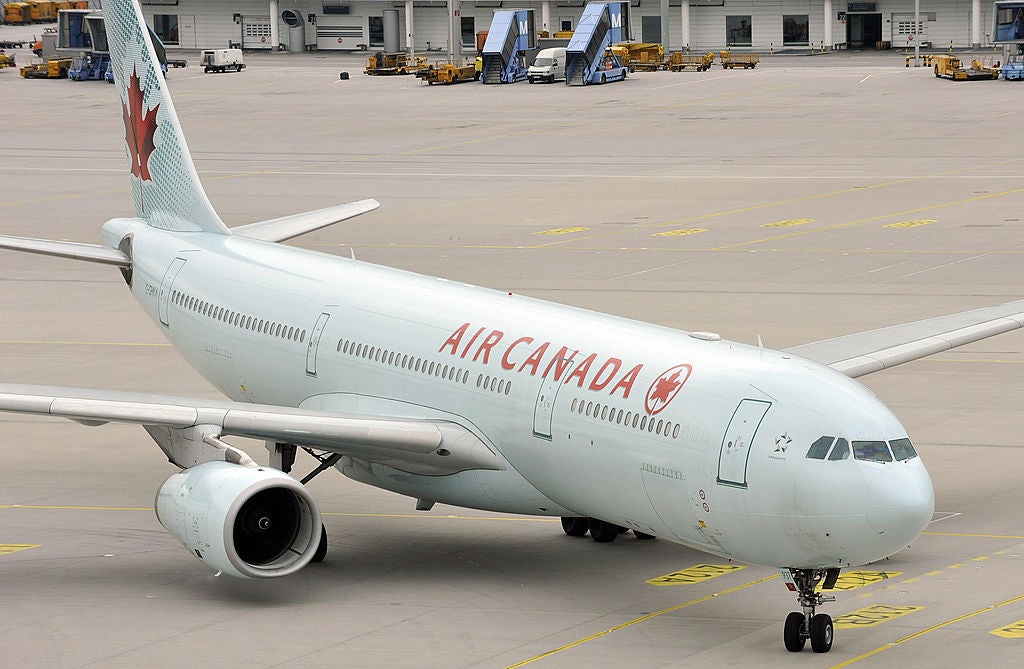Canada increases compensation for bumped air passengers to more than £1,400
Under the new rules, airlines must ask every passenger on an overbooked flight if they will take a later flight in return for a financial incentive

Airline travellers to, from and within Canada are soon to benefit from the world’s toughest passenger-rights rules, with carriers that overbook obliged to pay over £1,400 to people bumped off planes.
The Canadian Transportation Agency has unveiled Air Passenger Protection Regulations that apply to any flight to, from or within Canada. Most of the rules take effect on 15 July 2019.
The harshest penalties are the payments stipulated for passengers who are denied boarding against their will. While selling more tickets than there are seats available on a flight is legal, the new rules make it obligatory to ask every passenger on an overbooked flight if they will take a later flight in return for a financial incentive.
An airline “must not deny boarding to a passenger unless it has asked all passengers if they are willing to give up their seat”. If there are insufficient volunteers, and a passenger is offloaded against their will, the airline must pay compensation of C$2,400 (£1,405) “not later than 48 hours after the time of the denial of boarding”.
The maximum commensurate payment under the European air passengers’ rights rules is €600 (£520).
Canada also leapfrogs Europe’s tariff for flight delays, by stipulating a payment of C$1,000 (£590) for delays of above nine hours; the €600 (£520) maximum in the EU is for delays of four-hours on long-haul flights.
Passengers are able to claim only once, so for a UK-Canada flight delayed by nine hours or more the passenger’s best option would be to claim for the Canadian compensation.
However, in Canada delays due to technical problems do not qualify for compensation.
For small airlines, which fly fewer than two million passengers annually, payment levels are approximately halved.
Canada’s transport minister, Marc Garneau, said: “Our goal was to provide a world-leading approach to air passenger rights that would be predictable and fair for passengers, while ensuring our air carriers remain strong and competitive.”
The International Air Transport Association (Iata), which is based in Canada, is firmly against high payouts, saying instead that airlines should compete on their provisions for disrupted passengers: “Government regulations should form the ‘lowest common denominator’ and market forces should be allowed to determine additional standards of service levels.”
It adds: “Safety-related delays or cancellations, such as those resulting from technical issues with an aircraft, should always be considered as extraordinary circumstances such as to exonerate air carriers from liability for such delays and cancellations.”
The Canadian regulations add significant precision to rules on seating children close to adults.
Any child under five must be sat adjacent to a parent or carer. Children between five and 11 cannot be separated by more than one seat. Twelve- and 13-year-olds must be seated no further than an adjacent row.
Join our commenting forum
Join thought-provoking conversations, follow other Independent readers and see their replies
Comments
Bookmark popover
Removed from bookmarks